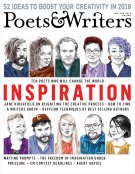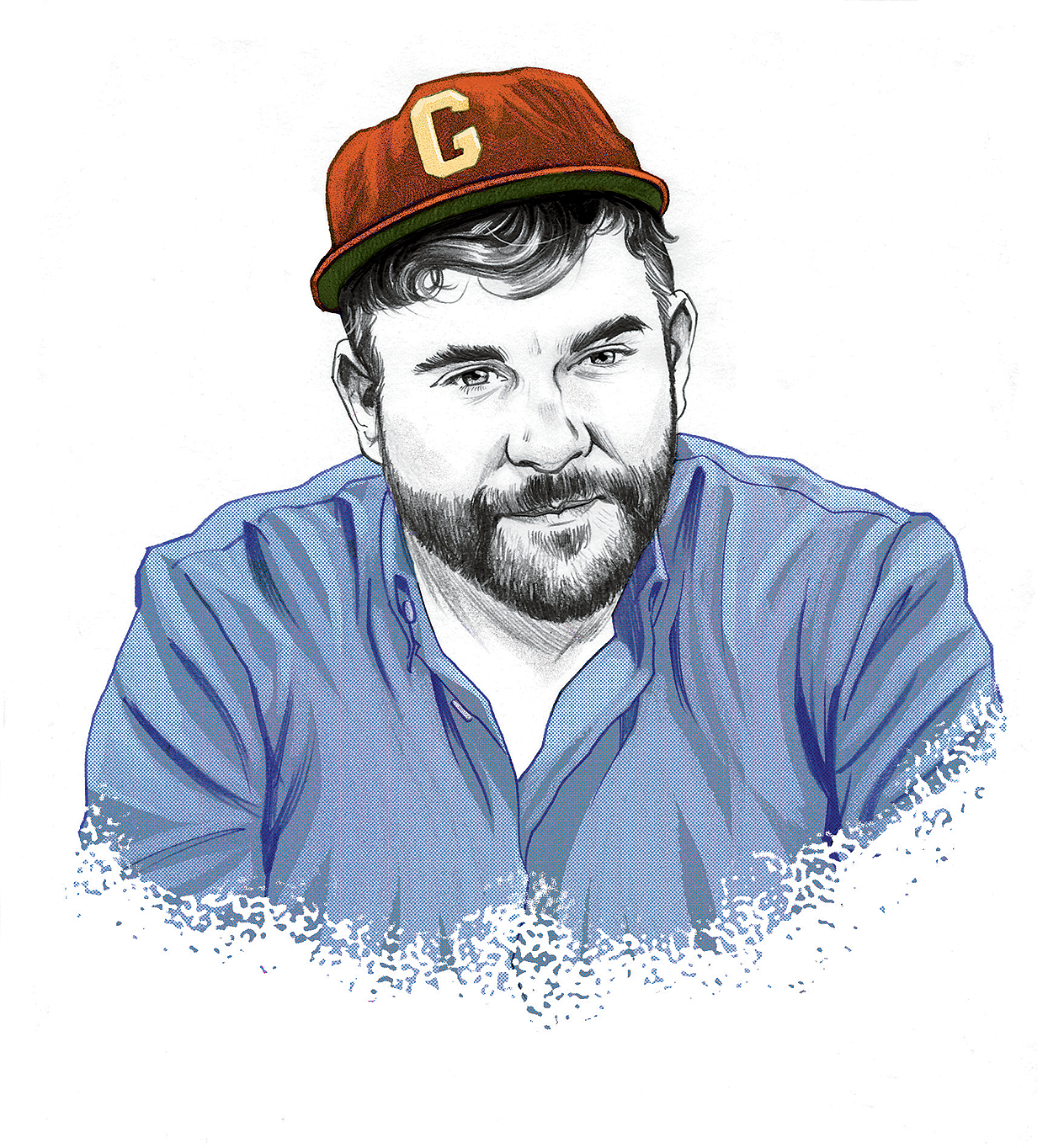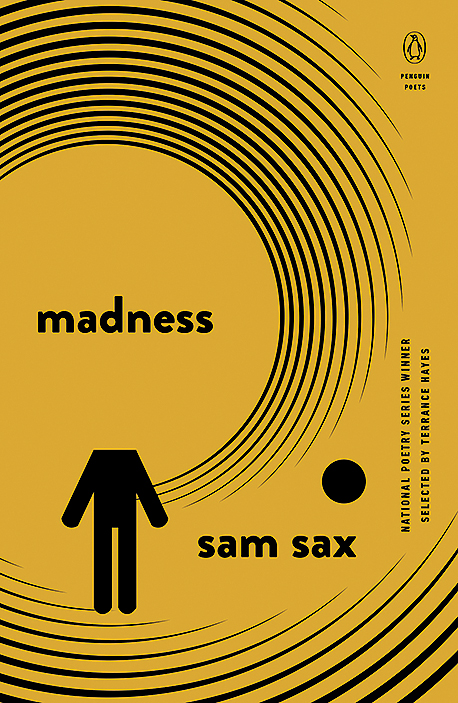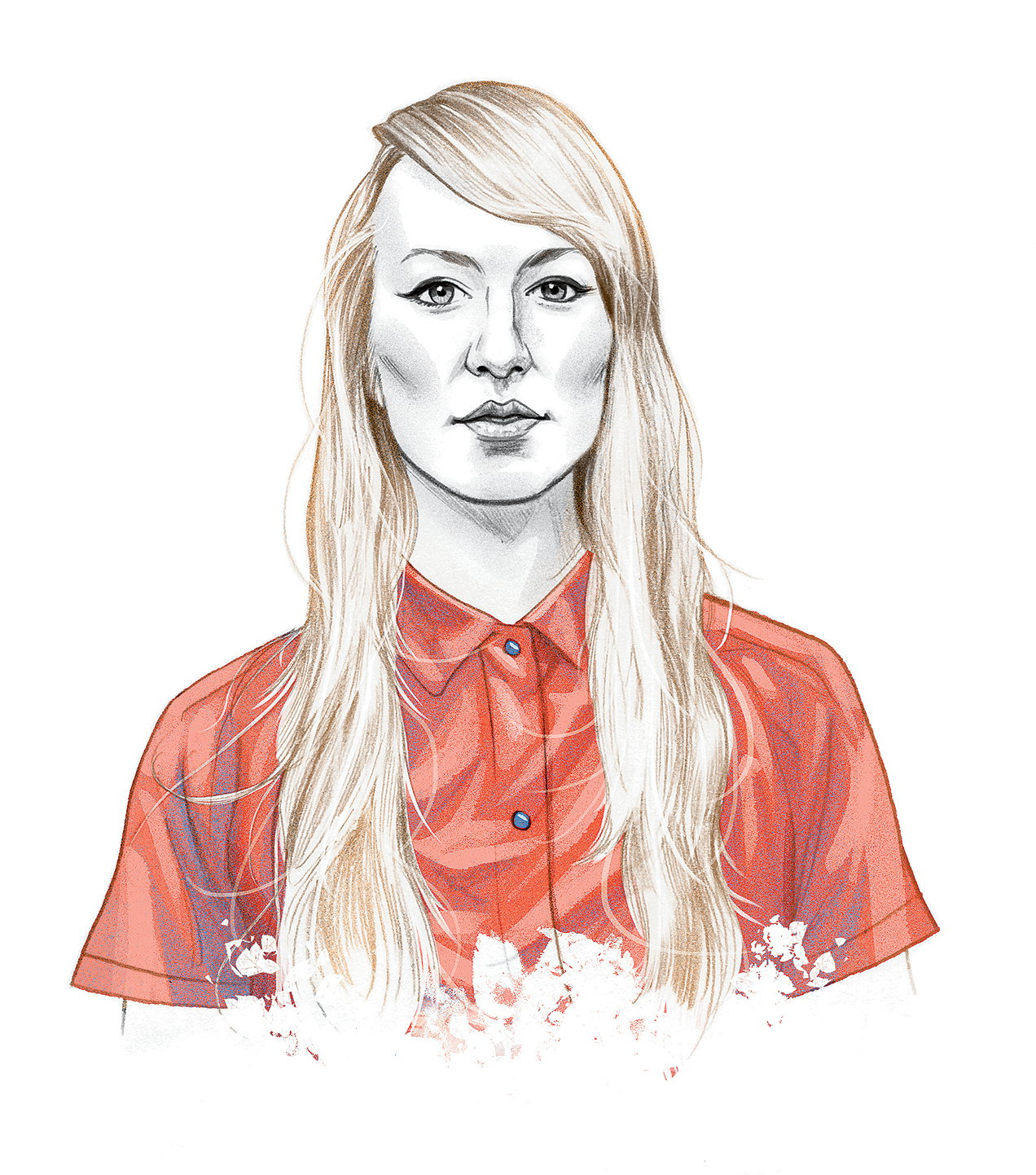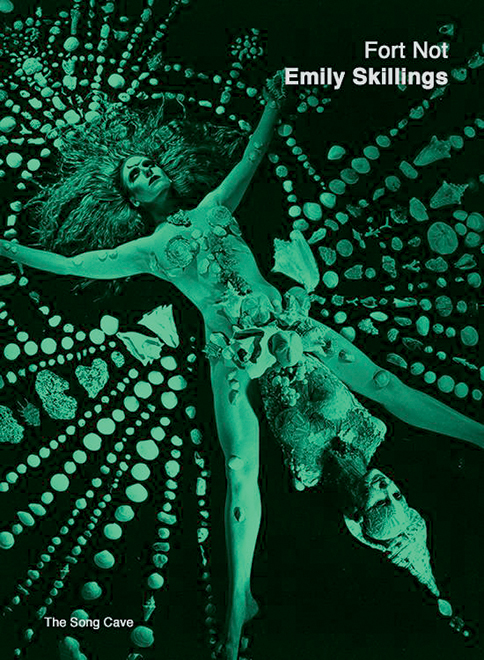sam sax
Madness
Penguin Books (National Poetry Series)
you either love the world
or you live in it
—from “Warning: Red Liquid”
How it began: The seed for this book was actually just an exercise I gave myself. I’d come across a list of reasons for admission to a mental asylum in Allegheny, Pennsylvania, in the 1800s that included examples such as “kicked in the head by a horse,” “tobacco and masturbation,” and “novel reading,” which I thought would all make lovely titles for poems. So I went to the woods (a residency at the Blue Mountain Center) but found I couldn’t write poems within that stricture. Instead I refocused my attention on the precise moment in history when homosexuality was taken out of the Diagnostic and Statistical Manual of Mental Disorders (DSM) and how that act of depathologizing has affected the way we think about and embody queerness and desire today. I began to work sequentially, incorporating my own relationship and my family’s relationship with mental health as both patients and practitioners. Through this process I discovered how clearly you can draw a line between so much of the inherited, lived, and systemic violence we experience and perpetuate today back to those early diagnoses.
Inspiration: Some of my research materials were The Birth of the Clinic and Madness and Civilization by Michel Foucault. The DSM-I from 1952. The collected paintings of Francisco Goya and Hieronymus Bosch. Freud’s idea of the pleasure principle. Talking with my grandpa. The Sawbones podcast.
Influences: My friends. The folks I started writing with and have grown alongside over many years have unequivocally had the most impactful and life-altering affect on my writing and personhood. Some of those folks are Franny Choi, Cameron Awkward-Rich, Hieu Minh Nguyen, Danez Smith, Fatimah Asghar, as well as countless other geniuses I’m lucky enough to be around. I’d also say there’s a litany of smart, politicized, literary, sad homosexuals from the present back to Hart Crane flinging himself off the deck of that ship who have made my work possible.
Writer’s block remedy: Give up and start something new. There are many poems to be written. If something isn’t working, I feel totally fine putting it aside and writing toward what has the most urgency and energy around it. Another thing that frees me up from the internal and newly external pressures of writing poems is being a-okay making terrible ones. I try to think of each new piece of writing as an experiment until it transcends that and becomes a poem. There’s something about the lack of preciousness around this process that helps me think of them as disposable until they become indispensable. Also each experiment and almost poem that doesn’t meet the world helps me accrue knowledge that will inform the next thing I write.
Advice: Everyone’s journey is different, and I can’t think of any catchall prescriptive advice outside of: Don’t be a jerk. It can be a really crummy process. For the longest time not having a book made me quite sad, and I always found it mad frustrating when someone who was already established told me to take my time and that it would work out how it’s supposed to. Although that turned out true in my case, I don’t necessarily think this is good advice. If you’ve finished one project, move on to another. You can always return to edit what you’ve already written. The doldrums that sometimes arise from not having a book can be dangerous. Madness is the sixth or seventh full manuscript I put together over eight or so years of writing, and to be honest, had any of those initial books been published, it would have been bad news. The time it took to get these books into the world has been invaluable for their life as books and for mine as a writer. So if you can stomach the patience, go for it. If not, publish chaps! Self-publish zines (I made like twenty as a younger punk writer.) There are lots of ways to get your work out into the world that isn’t as precious, lauded, and seemingly impossible as the first book object. Fuck it up. Make your poems indispensable to the world and let publishers fight over the privilege of supporting your work.
Finding time to write: I find time to write in the mornings before other obligations, during a spare hour at the coffee shop, on trains, buses. I’ve been trying to broaden my notion of what writing is to include the passive moments—a shift in perspective where looking at the world is just as important as writing it down.
What’s next: I’ve got two books in the works. There’s a collection of poems that’s currently circling around a sequence of Anthropocene / Apocalypse poems that attempt to celebrate queer joy in community and loneliness as the world burns. I’m also working on a novel, which is a queer Jewish coming-of-age story told in nonlinear fragments from the perspective of someone who’s just lit their self on fire outside of Trump Tower.
Age: 31.
Hometown: Born in Manhattan, went to high school in Mamaroneck, New York.
Residence: Brooklyn, New York.
Job: I teach poetry and give readings.
Time spent writing the book: A little over a year. I wrote the drafts and skeletons for two-thirds of the book in the month I was up at a residency, and I spent the next year editing and refining. The rest of the book I wrote in and out of graduate school.
Time spent finding a home for it: Well, I’d just had my first book, which will be published second, picked up by Wesleyan University Press. The process of writing and sending it out took five to six years, although the book is wildly different from earlier versions I’d sent out. I had finished writing that first book and was tired of waiting for it to be accepted, so I decided to write a second book. I sent Madness out on a whim to the National Poetry Series and was expecting to have a multiyear journey of searching for a publisher, but amazingly Terrance Hayes selected the book. We had to push back my first book, Bury It, by a year so that the two books wouldn’t be in competition with each other.
Recommendations for debut poetry collections from this year: Oy. This year has been ridiculously plump with incredible and dangerous first books. Here’s my list of poets whose first books this year took the top of my head off: Nicole Sealey, Kaveh Akbar, Erika L. Sánchez, Ife-Chudeni A. Oputa, Tyree Daye, Meg Freitag, Chen Chen, Eve L. Ewing, Layli Long Soldier, William Brewer, Chelsea Dingman, Javier Zamora, and I am SURE I’m leaving some wonderful books off this list.
***
Emily Skillings
Fort Not
The Song Cave
I was never here.
I’m not coming back.
I’m at sea.
—from “Crystal Radio”
How it began: This book is a collection of mostly discrete poems that I wrote in graduate school (a handful were written in the time before and after). I never set off to write it; I looked back and gathered things I’d previously written and arranged them and drew out connections among them. It’s more of an act of returning. I think many first books begin this way, by remembering what’s been done already. Some of the shared attentions and themes of the book include depression, gender, color, painting and visual art, toxic white femininity, cloudiness, somatic experience, cantankerousness, jealousy, sex, light, America, collage, feelings without names, looming dread, boredom, water. I think in a larger sense I wanted to create a space where a state of not quite knowing felt expert, delightful, powerful.
Inspiration: I feel a little corny saying this, but my friends are my greatest inspiration. I am about to coteach a class on the poetics of refusal with a friend, the poet and artist Simone Kearney, at Parsons School of Design. Our conversations around this subject, around phenomenology and Gaston Bachelard’s The Poetics of Space, Virginia Woolf’s On Being Ill, and other texts that draw out these “slow states,” have really helped to create an environment for my work to emerge. The workshops and seminars I attended at Columbia were also instrumental. My students inspire me every week with their risk-taking and generosity. John Cleese’s character, Basil Fawlty, in the 1970s British sitcom Fawlty Towers shaped a lot of my early fascination with language, as did my father’s yellow legal pads, my mother’s excellent malapropisms and non sequiturs (“mind like a steel sieve”/ “letting the can of worms out of the bag”), and my brother’s baroque prose and steady diet of cyberpunk novels. I am a dedicated follower of a Twitter account of Yiddish proverbs.
Influences: John Ashbery, A. R. Ammons, Marcella Durand, Laura (Riding) Jackson, Eileen Myles, Francis Ponge, Sei Shōnagon, Mary Ruefle, Douglas Kearney, Susan Howe, Myung Mi Kim, Ariana Reines, Claudia Rankine, F. T. Prince, Emily Hunt, H. D., Harryette Mullen, Adam Fitzgerald, Alice Notley, Fernando Pessoa, my teachers Timothy Donnelly and Dorothea Lasky, Wayne Koestenbaum, Tracie Morris, Édouard Levé, Kim Hyesoon, Jorie Graham, Lucy Ives, Lyn Hejinian, Elizabeth Bishop, Jorge Luis Borges, James Schuyler, Lisa Robertson, Ali Power, Emily Dickinson, William Wordsworth, my dance teacher Alexandra Beller.
Writer’s block remedy: I usually reach an impasse because I need to take a minute to recharge, so I listen to that. I quiet down my writer mind and enter a reading-seeing phase that may last weeks or months. I use a lot of repetition and anaphora in my work (some of which gets cut later) because I find the experience of repeating oneself to be both necessary in our times and deeply clarifying and stimulating. To repeat a phrase is both to stabilize it in the memory of the writer and reader and to question its soundness, as in Gertrude Stein’s “Rose is a rose is a rose is a rose.” The rose is both etched in our mind and transformed, transmogrified. When I still made dances, I was obsessed with repetition and resultant exhaustion, and I often repeat as a way of entering or reentering a poem. I think I learned how to do this by listening to Anne Waldman and Dorothea Lasky.
One question I am still grappling with is how to negotiate a balance between “innovation,” constraint, and intuition. The painter Jane Freilicher put it best, I think, when she said, “To strain after innovation, to worry about being on ‘the cutting edge’ (a phrase I hate), reflects a concern for a place in history or one’s career rather than the authenticity of one’s painting.” There’s also, I think, a quieter quote somewhere about her letting go of the pressure to be innovative, and that she felt she could really paint after that, but I can’t seem to find it anywhere.
This sounds a little strange, but I like to think of my life so far as a writer as a kind of oscillation between states of openness and movement and states of stillness and solitude. There are islands of production, productivity, and then pockets of…nothing. I think I am grateful to my depression in this way, in that it often forces me to be still.
Advice: Support other writers by editing their books, teaching their work, inviting them to read, publishing them, letting them sleep on your couch, etc. Put your work in the hands of only people you know to be caring and dedicated. I am grateful that being a poet is perhaps more of a career path than it once was, and I know that being heard and read is vital to the form. That being said, I do find the professionalization of poetry (in which we all engage) to be in some ways hurtful to the writing itself. It’s okay to turn it off sometimes, this drive toward productivity. When you are writing, you are not involved in career making; you are being a poet. You are also a poet when you are teaching or walking around or doing your day job or looking at art. Don’t partition off your daily life from your writing life.
Eileen Myles once visited an undergraduate poetry workshop taught by Jennifer Firestone that I was taking, and she said something like: “There is something to being a poet that has nothing to do with writing poetry. It’s an identity.” This was such a relief for me when I heard it almost ten years ago, and yet I’m still not sure what it means. Perhaps what it means to me keeps changing. I like that.
Finding time to write: I am a very slow writer. I only sit down to write a poem a handful of times per month, but I find I am constantly jotting down fragments, recording phrases, and “puttering” (to borrow one of my mother’s favorite terms) over lines. I usually use my phone to record these, either as a note or in a voice memo. These scraps gleaned from daily life become the scaffolding of many of my poems. I’ve been commuting to teach this semester and have also found that being on a train (with no Wi-Fi!) and gently zooming through a landscape is very conducive to writing. I just have to stay ahead of the motion sickness.
What’s next: I’m working on a book-length poem sequence called “Mother of Pearl” about the environment and whether or not I want to eventually have children. It uses fragments of language from the anonymous Middle English poem “Pearl,” Nathaniel Hawthorne’s The Scarlet Letter, lyrics from Roxy Music’s song “Mother of Pearl,” and probably a few more sources. It is a very different experience than writing Fort Not, both because it is more of a project book than a collection, and because it relies on and is building itself around found language. I also want to start writing a novel but don’t quite know how.
Age: 29.
Hometown: Brunswick, Maine.
Residence: Brooklyn, New York, and sometimes Hudson, New York.
Job: Assistant to poets and an adjunct professor.
Time spent writing the book: Five years. I wrote the poem “Canary” in thirty minutes before a poetry reading at the Center for Book Arts in 2013 and didn’t change a word. I began the poem “Parallelogram” in 2014 and didn’t finish it until 2016, revising it well into 2017.
Time spent finding a home for it: I think I had a pretty rare experience in that the Song Cave (run by the incredible Alan Felsenthal and Ben Estes) was the first and only press to which I sent the manuscript, so not long. The deadline for the Song Cave’s 2016 open reading period (and my partner Danniel Schoonebeek’s gentle nudging to put it in my calendar) was one of the primary motivators for getting the initial manuscript together.
Recommendations for debut poetry collections from this year: William Brewer’s incredible I Know Your Kind comes to mind, and Nicole Sealey’s Ordinary Beast. Tongo Eisen-Martin’s second book, Heaven Is All Goodbyes (City Lights Books), is one of my favorite books of the year, along with Alan Felsenthal’s debut, Lowly (Ugly Duckling Presse). I am incredibly excited for Samantha Zighelboim’s The Fat Sonnets, which will be coming out in 2018 from Argos Books.







